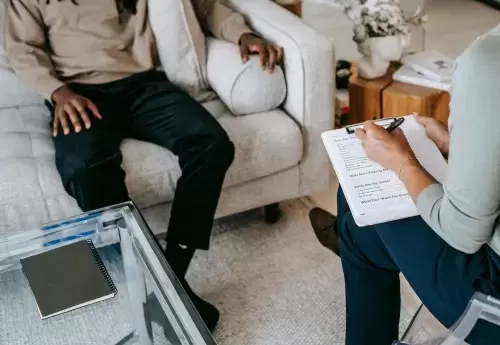
By Morgane Freeman, Marketer/Podcaster/Mental Health Advocate
As a Christian, I find comfort in prayer and the power of my faith. As a Black woman thriving with a mental illness, I know that “faith without works is dead.” (James 2:46) My faith has only empowered me to take care of myself and minister to others.
Throughout all my experiences, I believe God placed me in specific situations to better me and others around me. I call these experiences “God Winks,” like the Hallmark movie. Each of these “God Winks” has strengthened my relationship with God and helped with my mental health journey.
Childhood Faith
I can remember early Sunday mornings as a child heading to church. My adolescence was shaped in Christianity and being active in the church. Christianity set a good foundation to trust in something I couldn’t touch. To find help and healing in something bigger than my four walls.
Understanding Mental Health
In the Black community as a kid, I never learned about mental health. My only understanding was people were “crazy” or “insane” or other derogatory names that don’t normalize mental health. I thought therapy was for white people. From my experience, Black folks either prayed about it and found relief or kept it bottled up until it inevitably exploded. The community would whisper about those living with mental illness, unable to help them, but offer prayers and support the individual during what they assumed would be “a season” in this person’s life.
Black and Bipolar
I was 23 going on 24. I just started a new job at a local mental health nonprofit. I had to attend an evening fundraiser. It was 11 pm on a Thursday, I had a splash of wine at the fundraiser, but I knew something was off. I could hear voices, had terrible headaches, and later learned I was hallucinating. I pulled over to an empty mall parking lot and called an old grief counselor. She told me two things at that late hour: call your parents and call off work tomorrow. I listened to one, I called my parents. The following week I was diagnosed with bipolar.
Speaking to professionals
My faith was truly tested during the first months of my diagnosis. I don’t know if I even prayed. But I did feel a sense of relief knowing what was causing my headaches, the music in my head, and my mood swings.
Finding a doctor was my mom’s and my next mission, I wanted someone Black. When I finally found a doctor my mom was there, doing what moms do best, worrying. My doctor corrected my medications and added vitamins. This relationship has only grown since our first meeting. He has continued to assist me in my mental health journey.
The doctor also recommended a Black therapist. I continued monthly sessions with her. We’ve worked through acknowledging and coping with having bipolar. From these two influences, I’ve learned this is just a part of who I am, but it doesn’t define me.
Having conversations
At work, I saw firsthand the ways people live, cope, and thrive with mental illness. So, what was the solution to break the stigma? I knew I wasn’t equipped to answer this question, but I wanted my community to be knowledgeable.
In honor of BIPOC Mental Health Month, I invited a guest speaker to my church. He was interesting, compassionate and the congregation received this information well. Afterward, I thought to myself, “I started the conversation and I can help keep it going.”
After about a year, with faith and the investment of loving people placed in my life, I wasn’t ashamed of my mental illness. I found power in it. Now, I share my experiences with others on my podcast, Young Black MRS. It’s my goal to continue the conversation of mental wellness.
Morgane Freeman, MS, is a Digital Marketing Specialist in the Food Industry. She has a BA in Communications from Wilberforce University and MS in Marketing from SNHU. She resides in the Kansas City, MO area. In her free time, she’s the host of Young Black MRS podcast. Morgane also enjoys cooking and DIY crafts.




